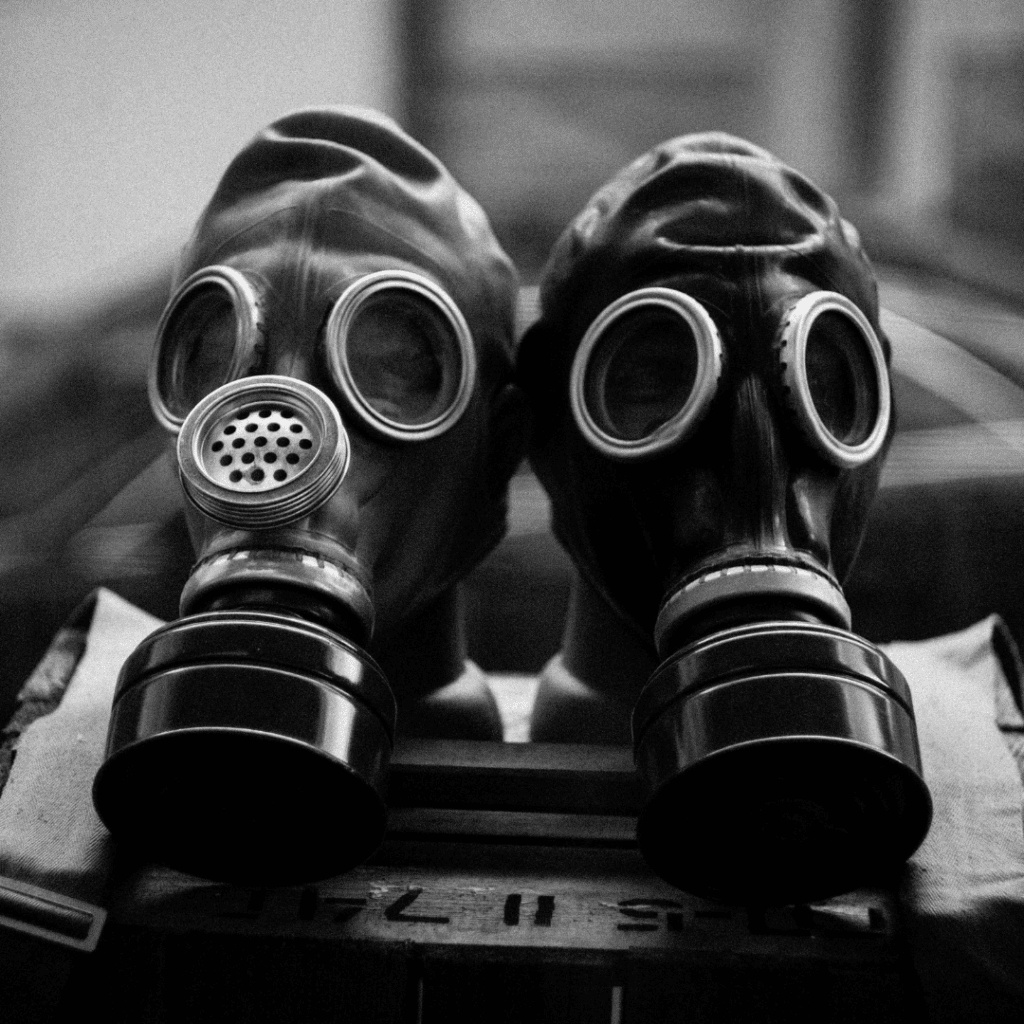Toxic relationships – definition
- Toxic relationships – definition
- Toxic relationships – behaviours
- 1. Deprecating – Belittling
- 2. “Bad Temper”
- 3. Guilt-Induction
- 4. Overreacting/Deflecting
- 5. The Over-Dependent Partner
- 6. The “Independent”
- 7. Exploiting
- 8. Possessive (Paranoid) Control
- Toxic relationships – consequences
- Lack of support
- Toxic communication
- Jealousy
- Controlling behaviours
- Resentment
- Dishonesty
- Patterns of disrespect
- Negative financial behaviours
- Constant stress
- Ignoring our needs
- Lost relationships
- Lack of self-care
- Hoping for change
- Walking on eggshells
- Toxic relationships – Can the relationship be saved?
- Here are a few other signs that we might be able to work things out.
- Willingness to invest
- A shift from blaming to understanding
- Openness to outside help
- Toxic relationship – How can we move forward?
- Here are some steps for turning things around:
- Don’t dwell on the past
- View our partner with compassion
- Start therapy
- Find support
- Practice healthy communication
- Be accountable
- Heal individually
- Hold space for the other’s change
- Abuse vs toxicity
- Diminished self-worth
- Chronic stress and anxiety
- Separation from friends and family
- Interference with work or school
- Fear and intimidation
- Name-calling and put-downs
- Financial restriction
- Gaslighting
- Threats of self-harm
- Physical violence
- Get help now
- Toxic Relationships and COVID-19
A toxic relationship is a relationship characterised by behaviours on the part of a toxic partner damaging to their partner, either emotionally, physically or both. While a healthy relationship contributes to our self-esteem and emotional energy, a toxic relationship damages self-esteem and drains energy. Even a good relationship may have its toxic moments. We are, after all, not perfect. Who of us had any formal education in how to relate to others? We often have to learn as we go, hoping that our primary style of relating to significant others – often learned from our parents and friends – is at least reasonably practical.
A toxic relationship, as in opposition to a healthy one, is not a safe place. It is characterised by insecurity, self-centeredness, dominance, and control. We risk our very being by staying in such a relationship. Within them, dysfunction is the norm. The toxic partner engages in controlling and manipulative behaviours daily. At the same time, to the outside world, a toxic partner often behaves in an exemplary manner.
There is mainly one reason for this behaviour: the toxic partner must be in complete control and must have all the power in. the relationship. Power-sharing does not occur significantly in a toxic relationship, meaning one person is overtly passive whether they are aware of it or not. And while power struggles are normal in any relationship, particularly in the early stages of a marriage, toxic relationships are characterised by one partner insisting on being in control. Their methods to exert control in a toxic relationship may or may not be readily apparent, even to their partner.
Toxic relationships – behaviours
A toxic partner may use several types of dysfunctional behaviours in a relationship with a significant other. Frequently, a toxic individual will use various kinds of controlling behaviours to achieve their ends. While the mentioned examples are typically seen in unhealthy marriages or other committed relationships, they can occur in parent-child interactions or even friendships.
1. Deprecating – Belittling
This type of toxic individual will constantly belittle us. They will make fun of us, essentially implying that pretty much anything we say that expresses our ideas, beliefs, or wants is silly or stupid. A toxic spouse will not hesitate to belittle us in public, in front of our friends or family. Even though we may have asked our toxic partner to stop criticising us, they will continue this behaviour, occasionally disguising it by saying, “I’m just kidding. Can’t you take a joke?” The problem is they are not kidding and what they’re doing is not a joke. The toxic partner wants all the decision-making power. Unfortunately, if we tolerate this deprecating behaviour long enough, we very well may begin to believe we can’t make good decisions.
This type of toxic individual will often tell us that we are lucky to have them as a partner, that no other man or woman would really want us. Their goal is to keep our self-esteem as low as possible to avoid us challenging their absolute control of the relationship.
2. “Bad Temper”
Frequently, a bad-temper-partner will work himself into a fury and lose his temper, and then often won’t interact in any meaningful way for days. “Controlling by intimidation” is the classic behaviour of a toxic partner.
Often these individuals have an unpredictable temper. Their partners often describe themselves as “walking on eggshells” around the toxic partner, never knowing what will send them into a rage. This constant need for vigilance and inability to understand what will trigger an angry outburst wears on both our emotional and physical health.
It is noteworthy that this type of emotionally abusive partner rarely shows this side of themselves to the outside world. No one else would label the relationship toxic, meaning they are frequently thought of as a pleasant, easy-going person who almost everyone likes.
If we confront a “bad temper” partner about the inappropriateness of their anger, they will almost always blame their temper outburst on us. Somehow, it’s our fault they yell and scream. This disowning of responsibility for their dysfunctional behaviour is typical of a toxic partner.
3. Guilt-Induction
Control in toxic relationships can be exercised by inducing guilt in the “victim.” The guilt inducer controls by encouraging us to feel guilty any time we do something they don’t like. Not infrequently, they will get someone else to convey their sense of “disappointment” or “hurt” to us. For example, our father calls up to tell us how disappointed our mother was that we didn’t come over for Sunday dinner.
A guilt inducer not only controls by inducing guilt but also by temporarily “removing” guilt if we end up doing what they want us to do. For guilt-prone individuals, anything or anyone that removes guilt is very desirable and potentially almost addictive, so the guilt inducer has a potent means of control at their disposal.
Incidentally, guilt induction is the most common form of control used by toxic parents (s) to control their adult children. During COVID-19 lockdowns, unhealthy relationships between adult children and their parents may end in conflict over restricting access to grandchildren. Or an attempt to convince us that we limit their ability to love them when we limit the number of gifts and surprise packages they can drop off at the house.
Frequently, a spouse or significant other will disguise their guilt-inducing control by seemingly supporting a decision we make – i.e., going back to school – but will then induce guilt by subtly reminding us of how much the children miss us when we are gone or how we haven’t been paying much attention to them lately, etc. As with all toxic behaviours, guilt-inducing is designed to control our behaviour, so our toxic partner, parent, or friend gets what they want.
4. Overreacting/Deflecting
Suppose we have ever tried to tell a significant other that we are unhappy, hurt, or angry about something they did and somehow end up ourselves taking care of their unhappiness, hurt, or anger. In that case, we are dealing with an overreactor/deflector. We find ourselves comforting them instead of getting comfort ourselves. And, even worse, we feel bad about ourselves for being “so selfish” that we brought up something that “upset” our partner so much. Our initial concern, hurt, or irritation gets lost as we remorsefully take care of our partner’s feelings.
A variation on this theme is the deflector: We try and express our anger or irritation regarding some issue or event – our spouse stays out with their friends two hours longer than they said they would and doesn’t even bother to call – and somehow our toxic partner finds a way to make this our fault!
The deflector is confused that the information we are bringing to their attention conflicts with their self-perception. That is so uncomfortable that they inadvertently convince us that we are the ones with “work to do.” Perhaps we are being too sensitive. Or maybe instead of an apology, we are offered a calculated question: “But do you love me?” Suddenly the criticism is replaced with praise.
5. The Over-Dependent Partner
Toxic controllers want us to make virtually every decision for them, from where to go to dinner to what car to buy. Not deciding is a decision too. It has the advantage of making someone else responsible for the outcome of that decision. And the partner’s passive-aggressive behaviour, such as pouting or not talking, will make clear that the decision taken by us was wrong. Or, during a weekend with parents, the partner goes along but doesn’t speak to anyone for two days.
Passivity can be a potent means of control. A relationship with a passive controller causes constant anxiety and fatigue due to worries about decisions on the passive partner and exhaustion by having to make virtually every decision.
6. The “Independent”
This individual frequently disguises their toxic, controlling behaviour as simply asserting their “independence.” This toxic individual will only rarely keep their commitments. These individuals are up to controlling us by keeping us uncertain about what they’re going to do. Non-dependables will say they’ll call us, they’ll take the kids to a movie Saturday, etc., but then they don’t. Something always comes up. They usually have a plausible excuse, but they simply don’t keep their commitments. In this relationship, toxic control means making it next to impossible for us to make commitments or plans.
What’s even more distressing is that this type of toxic individual does not make us feel safe and secure in our relationship. It’s not just their behaviour that’s unpredictable. We are never quite sure that they are emotionally committed to us, that we and our relationship with them are a priority in their life. We will often ask for reassurance from them, reassurance that they love us, find us attractive, are committed to our marriage, etc. Their response is usually just vague enough to keep us constantly guessing and is designed to keep us doing what they want to “earn” their commitment. The anxiety we feel in such a relationship can, and often does, eat away at our emotional and physical health.
7. Exploiting
Especially at the beginning of a relationship, users often seem to be amicable, courteous, and pleasant individuals. And they are, as long as they’re getting everything they want from us. What defines toxic exploitation is its one-way nature and the fact that we will end up never having done enough for them. Users are big-time energy drainers who will leave us if they find someone else who will do more for them.
An adept user will occasionally do some small thing for us, usually something that doesn’t inconvenience or cost them too much. Be warned: they have not offered us a gift; they’ve burdened us with an obligation. If we ever baulk at doing something for them or doing things their way, they’ll immediately hold whatever they’ve done over our heads and work hard to induce guilt.
8. Possessive (Paranoid) Control
This type of toxic behaviour is terrible news. Early in our relationship with them, we may feel flattered by their “jealousy,” mainly if it isn’t too controlling. And most, but certainly not all, possessives will imply that once the two of us are married or in a committed relationship, they’ll be just fine. Don’t believe it for a moment.
These toxic individuals will become more and more suspicious and controlling as time goes on. They’ll check the odometer in our car to make sure we haven’t gone somewhere we “shouldn’t,” they’ll interrogate us if we have to stay late at work, they will, in short, make our life miserable. They may even use technology to their advantage, using smart devices to check on our physical location or doorbell cameras to eavesdrop or verify we arrived at home when we said we would. Over time they will work hard to eliminate any meaningful relationships we have with friends, and sometimes even with family. They do not see themselves in a relationship with us; they see themselves as possessing us.
Our efforts to reassure a toxic possessive about our fidelity and commitment to them will be in vain. If we stay in a relationship with such an individual, we will cease to have a life of our own.
Toxic relationships – consequences
If we are in a toxic relationship, we may recognise some of these consequences in ourselves, our partner, or the relationship itself.
Lack of support
Our time together has stopped being positive or supportive of our goals. Healthy relationships are based on a mutual desire to see the other succeed in all areas of life. But when things turn toxic, every achievement becomes a competition. In other words, we don’t feel like they have our back.
Toxic communication
Instead of treating each other with kindness, most of our conversations are filled with sarcasm, criticism, or overt hostility. We may even start avoiding talking to each other.
Jealousy
While it’s normal to experience jealousy from time to time, it can become an issue if we can’t get ourselves to think or feel positively about the other’s success.
Controlling behaviours
Questioning where we are all the time or becoming overly upset when we don’t immediately answer texts are both signs of controlling behaviour, contributing to toxicity in a relationship. In some cases, these attempts of control can be a sign of abuse (see above).
Resentment
Holding on to grudges and letting them fester chips away at intimacy. Over time, frustration or resentment can build up and make a smaller chasm much bigger.
Dishonesty
We find ourselves constantly making up lies about our whereabouts or who we meet up with to avoid spending time with our partner.
Patterns of disrespect
Being chronically late, casually “forgetting” events, and other behaviours that show disrespect for our time are a red flag.
Negative financial behaviours
Our partner might make financial decisions, including purchasing big-ticket items or withdrawing large sums of money, without consulting us.
Constant stress
An average amount of tension runs through every relationship but finding ourselves constantly on edge indicates something’s off. This ongoing stress can take a toll on our physical and emotional health.
Ignoring our needs
Going along with whatever our partner wants to do, even when it goes against our wishes or comfort level, is a sure sign of toxicity. For example, we might agree to a vacation they planned, either intentionally or unintentionally, for dates that aren’t convenient for us.
Lost relationships
We have stopped spending time with friends and family, either to avoid conflict with our partner or to get around having to explain what’s happening in our relationship. Alternatively, we might find our free time is wrapped up in dealing with our partner.
Lack of self-care
In a toxic relationship, we might let go of our usual self-care habits. We might withdraw from hobbies we once loved, neglect our health, and sacrifice our free time.
Hoping for change
We might stay in the relationship because we see the other person’s potential or think that if we just change ourselves and our actions, they’ll change as well.
Walking on eggshells
We worry that we will provoke extreme tension by bringing up problems, so we become conflict-avoidant and keep any issues to ourselves.
Toxic relationships – Can the relationship be saved?
Many people assume that toxic relationships are doomed, but that isn’t always the case. But for any kind of change for the better, both partners must want to change. If only one partner is invested in creating healthy patterns, there is —unfortunately — little likelihood that change will occur.
Here are a few other signs that we might be able to work things out.
Willingness to invest
We both display an attitude of openness and willingness to invest in making the relationship better. That may manifest by an interest in deepening conversations or setting aside regular blocks of time for spending quality time together.
Responsibility
Acceptance of past behaviours that have harmed the relationship is vital on both ends. It reflects an interest in self-awareness and self-responsibility.
A shift from blaming to understanding
If we are both able to steer the conversation away from blaming and more toward understanding and learning, there may be a path forward.
Openness to outside help
Sometimes, we might need help to get things back on track, either through individual or couples counselling.
Toxic relationship – How can we move forward?
Repairing a toxic relationship will take time, patience, and diligence. That is especially the case, given that most toxic relationships often occur due to longstanding issues in the current relationship or as a result of problems unaddressed from prior relationships.
Here are some steps for turning things around:
Don’t dwell on the past
Sure, part of repairing the relationship will likely involve addressing past events. But this shouldn’t be the sole focus of our relationship moving forward. Resist the temptation to refer back to adverse scenarios constantly.
View our partner with compassion
When we find ourselves wanting to blame our partner for all the problems in the relationship, try taking a step back and looking at the potential motivators behind their behaviour. Have they been going through a hard time at work? Was there some family drama weighing heavily on their mind? These aren’t excuses for bad behaviour, but they can help us better understand where our partner’s coming from.
Start therapy
An openness to therapy can be a good sign that things are mendable. Following through on this can be vital to helping the relationship move forward. While couples counselling is a good starting point, individual therapy can be a helpful addition.
Find support
Regardless of whether we decide to try therapy, look for other support opportunities. Maybe this involves talking to a close friend or joining a local support group for couples or partners dealing with specific issues in their relationship, such as infidelity or substance misuse.
Practice healthy communication
We should pay close attention to how we talk to each other as we mend things. Be gentle with each other. Avoid sarcasm or mild jabs, at least for the time being. Using “I” statements, especially when talking about relationship issues is always a good idea. For example, instead of saying, “You don’t listen to what I’m saying,” we could say, “I feel like you aren’t listening to me when you take out our phone while I’m talking.”
Be accountable
Both partners must acknowledge their part in fostering the toxicity. That means identifying and taking responsibility for our actions in the relationship. It’s also about being present and engaged during difficult conversations.
Heal individually
Each of us needs to determine what we need from the relationship and where our boundaries lie. Even if we feel like we already know our needs and limits, it’s worth revisiting them. The process of rebuilding a damaged relationship offers an excellent opportunity to re-evaluate how we feel about some aspects of the relationship.
Hold space for the other’s change
Remember, things won’t change overnight. Over the months, work together on being flexible and patient with each other as we grow.
Abuse vs toxicity
Toxicity in a relationship can take many forms, sometimes even forms of abuse. There’s never an excuse for abusive behaviour. Abuse comes in many shapes and sizes. That can make it hard to recognise, especially if we have been in a long-term, toxic relationship.
The following signs suggest physical or emotional abuse. If you recognise any of these in your relationship, it’s probably best to walk away. That is easier said than done.
Diminished self-worth
Our partner blames us for everything that goes wrong and makes us feel like we can’t do anything right. We end up feeling small, confused, ashamed and often exhausted. They may do this by patronising, dismissing, or embarrassing us in public.
Chronic stress and anxiety
It’s normal to have periods of frustration with our partner or doubts about our future together. But we shouldn’t spend significant amounts of time worrying about the relationship or our safety and security.
Separation from friends and family
Sometimes, dealing with a toxic relationship can cause us to withdraw from friends and family. But an abusive partner may forcefully distance us from our support network. For example, they might unplug the phone or getting in our face to distract us while talking. They may also convince us that our loved ones don’t want to hear from us, anyway.
Interference with work or school
Forbidding us from seeking employment or studying is a way to isolate and control us. They may also attempt to humiliate us at our workplace or school by causing a scene or talking to our boss or teachers.
Fear and intimidation
An abusive partner might explode with rage or use intimidation tactics, such as slamming their fists into walls or not allowing us to leave the house during a fight.
Name-calling and put-downs
Insults aimed to humiliate and belittle our interests, appearance, or accomplishments are verbal abuse.
Financial restriction
They may control all the money that comes in and prevent us from having our bank account, restricting access to credit cards, or only giving us a daily allowance.
Gaslighting
Gaslighting is a technique that makes us question our feelings, instincts, and sanity. For example, they may try to convince us that they’ve never been abusive, insisting it’s all in our heads. Or they may accuse us of being the ones with anger and control issues by acting like the victim.
Threats of self-harm
Threatening suicide or self-harm to pressure us into doing things is a form of manipulation and abuse.
Physical violence
Threats and verbal insults can escalate to physical violence. If our partner is pushing, slapping, or hitting us, it’s a clear sign that the relationship has become dangerous.
Get help now
If you suspect you might be in an abusive relationship, trust our instincts and know you don’t have to live this way.
Toxic Relationships and COVID-19
COVID-19 has complicated the already delicate dance at home for people dealing with a toxic spouse or partner. The truth is, in a pandemic, toxic relationships can worsen. While what defines a toxic relationship is not necessarily physical violence, the World Health Organization did see a 60 per cent increase in women reporting emergency domestic abuse situations in April 2020. The loss of routine, perhaps even the loss of finances, can take someone who is already challenging to communicate with and turn up the heat. In turn, our loved one may experience a new intensity in their behaviours.
This relationship, during a lockdown, simply won’t be sustainable. In the short term, we will need to claim space as we prioritise activities that bring us peace. When coronavirus concerns have us concerned about our health and the health of our loved ones, there are no grounds to expect a sudden shift in our partner towards empathy. We need to anticipate that toxic behaviours will continue and plan for time apart – even when we are under the same roof.
Now is also the time to protect ourselves from developing our toxic patterns with the people we love. That means respecting the boundaries friends and families have established, whether it’s a request for quiet hours while working at home or a bid to keep our distance from someone whose concern about COVID-19 is more intense than ours. That means, too, recognising that sometimes friends and family will not reply to our calls and texts right away, even if we assume that we need them to respond because we feel isolated or lonely.
Creating an unhealthy relationship during COVID-19 may also look like making someone feel guilty for communicating the boundaries they need or deflecting responsibility for emotional outbursts by using pandemic stress as an excuse. Don’t let that happen.
Sources:
The Science Behind How Toxic Relationships Affect Your Mental Health






How do you deal with a toxic relationship?
There is only one way to deal with toxic relationships: end them and seek help.